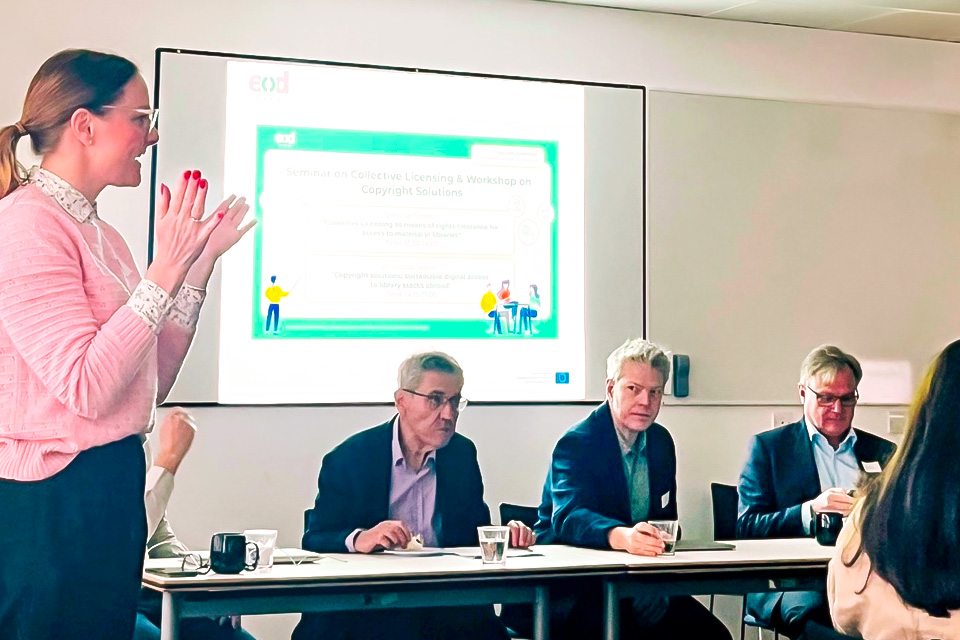Seminar on Collective Licensing and Workshop on Copyright Solutions: A Step Forward for Digital Access

On May 2nd, EODOPEN hosted a significant event in London, UK, focused on collective licensing and copyright solutions. This event, partially funded by the European Commission, was a collaborative effort between University College London (UCL) and the National Library of Sweden, EODOPEN's lead on copyright issues.
Seminar Highlights
The seminar featured discussions on the intricacies of collective licensing, emphasizing the need for accurate records and the balance between licenses and exceptions to enable legal use. Key points included the role of the Copyright Licensing Agency (CLA) and the challenges of cross-border access, which is crucial for distance learners.
Insights were shared on the history and efforts in collective licensing, generating significant revenue and facilitating legal access for educational institutions. However, the challenges of expanding these services across borders were also noted.
Workshop Insights
The workshop introduced the EODOPEN project, focusing on on-demand access to entire works for researchers and students. Discussions revolved around building trust with Collective Management Organizations (CMOs) and ensuring proper rights clearance for individual works.
Key Sessions
"Outcomes?" Session:
- Explored anticipated goals and impacts of new access forms.
- Highlighted the importance of remote digital access for libraries and digital humanities.
- Discussed the concept of a pilot project to trial cross-border access.
"How to do it?" Session:
- Focused on legal mechanisms across different countries.
- Emphasized the importance of establishing collective licensing schemes.
- Addressed challenges related to digitization and piloting cross-border models.
Conclusion
The seminar and workshop underscored the transformative potential of remote digital access and collective licensing. By fostering international collaboration and exploring innovative approaches, the event marked a significant step forward in enhancing accessibility and legal clarity in the digital field.
May 10, 2024